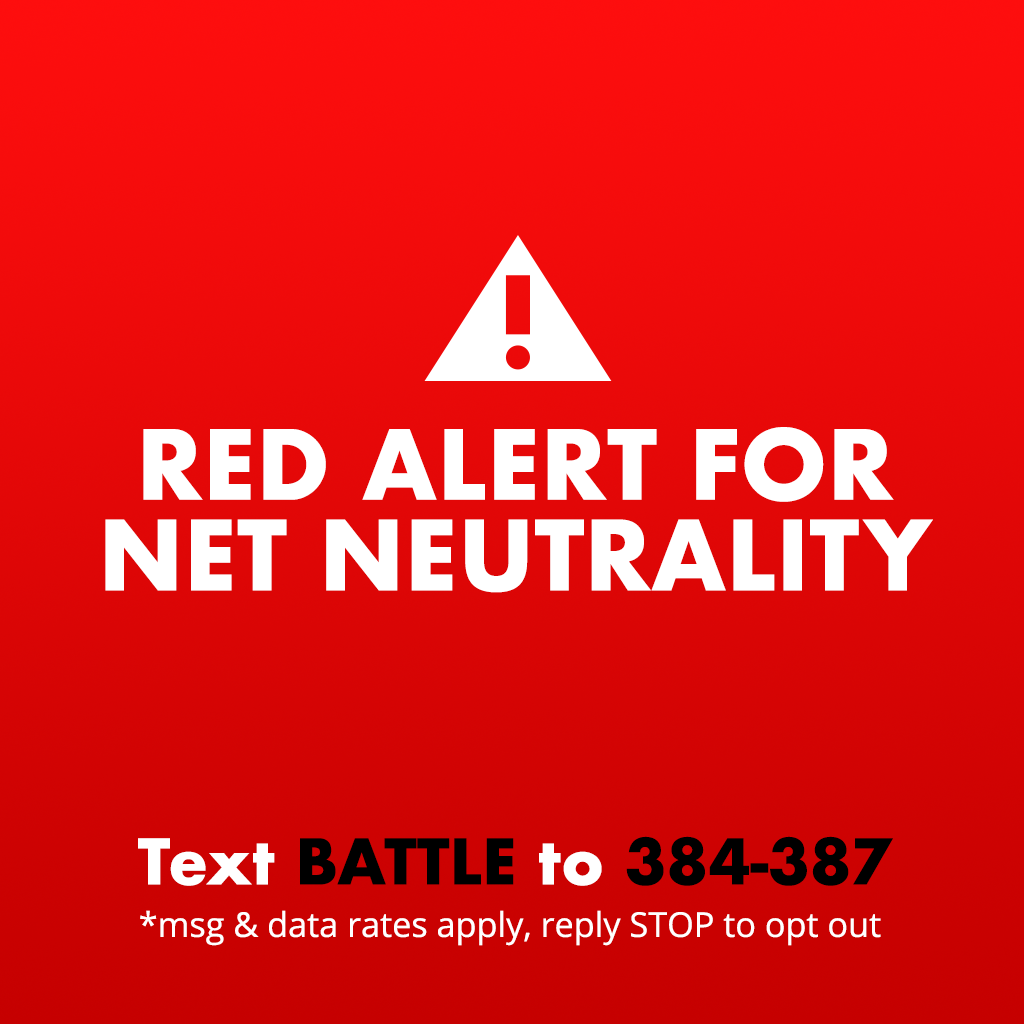What Happens Now with Net Neutrality?
BY Ryan Conley

LISTEN
The federal government has undone net neutrality rules, but states, tech companies and activists have not given up the fight for an open internet.
Network neutrality is the principle that all data on the internet should be treated equally, and internet service providers (ISPs) should not be allowed to give certain apps or services special treatment. In 2015, after a campaign of activism involving hundreds of thousands of people, the Federal Communications Commission (FCC) reclassified broadband services as “telecommunications services,” allowing for strong “Title II” protection and strict regulations against throttling and paid prioritization of internet traffic. However, just two years later, the FCC reversed course, led by Ajit Pai, the commission’s new chair appointed by President Trump.
The FCC voted to repeal its net neutrality rules in December 2017, but did not publish the vote in the Federal Register until February 2018.
Before the rules are officially defunct, the repeal itself needs to be published in the Federal Register, and the U.S. Office of Management and Budget has to sign off on the FCC’s weaker replacement rules. Observers note that the long delay between the vote and actual repeal is unusual, especially since Pai claimed that the existing rules were stifling investment. Some theorize that the repeal is still on shaky ground, and the FCC wants more time to garner support for the change and prepare for legal challenges. In the meantime, proponents of net neutrality are mobilizing on several fronts.
Democrats in the U.S. Senate are organizing to force a vote on restoring the FCC’s net neutrality rules. They plan to use a Congressional Review Act (CRA) resolution to roll back the repeal. The CRA allows Congress to reverse a federal rule by passing a joint resolution of disapproval. Democrats in the Senate collected the 30 signatures necessary to force a vote. All 49 Senate Democrats support the measure, along with Sen. Susan Collins (R-ME), so net neutrality proponents need just one more vote for the bare majority required to pass the resolution in the Senate. Overturning the repeal gets more difficult, since Republicans control the House and President Trump would likely veto the measure. However, the push in Congress will keep the issue in the spotlight and force legislators to take a public stand.
Several popular websites planned a May 9 public awareness campaign to draw attention to the Senate resolution. Websites like Tumblr, Etsy and Foursquare posted prominent “go red” messages as part of the protest, dubbed “Red Alert for Net Neutrality.”

The online demonstration was organized by BattleForTheNet.com, a coalition of activist groups including Fight for the Future and the Electronic Frontier Foundation. Similar campaigns were crucial to organizing public support for net neutrality in the lead up to passage of Title II protections in 2015.
A number of state legislatures have responded to the FCC’s repeal by introducing their own measures to protect the open internet. Washington and Oregon have both passed state level net neutrality laws. Washington’s legislation, signed into law March 5 by Gov. Jay Inslee, goes into effect June 6. It prohibits ISPs from blocking or slowing down web traffic, and from charging website owners and app developers to speed up their traffic. Oregon’s law, signed by Gov. Kate Brown April 10, prohibits state government agencies from doing business with ISPs that do not follow net neutrality rules. In total, 28 state governments are pursuing one or more bills to increase net neutrality protections. The governors of Hawaii, Montana, New Jersey and New York passed executive orders imposing procurement obligations on state agencies, prohibiting them from contracting with providers who block or slow websites or offer fee-based internet fast lanes.
Several lawsuits have also been filed against the FCC’s repeal. One lawsuit, filed by 21 state attorneys general, alleges that the repeal violated federal law. The coalition of states, led by New York Attorney General Eric Schneiderman, filed the suit, claiming the agency’s action was “arbitrary and capricious.” Schneiderman said that the FCC had failed to justify its repeal action, while dismissing evidence of harm to businesses and consumers. The suit also alleges that Pai’s reversal of net neutrality rules misinterprets the Communications Act and unlawfully preempts state and local laws. Another lawsuit, filed by tech companies including Etsy, Kickstarter and Shutterstock, also focuses on the Administrative Procedure Act, which they argue prohibits the FCC from engaging in “arbitrary and capricious” changes to existing policy. Twelve different lawsuits, filed by more than three dozen entities, have been consolidated into one suit. A multi-circuit lottery was held to determine which federal appeals court would hear the case, and the Ninth Circuit court in San Francisco was selected.
Proponents of net neutrality seem ready for a long fight. The Electronic Frontier Foundation warned that even if the 2015 protections are restored, the battle for an open internet will not be over. The organization said that ISPs have to be transparent about how they manage network traffic so that the public can know whether there is a problem, and state and local governments have to act to support municipal and community networks, so that consumers have more choices and can vote with their dollars by supporting ISPs that maintain open networks.
LATEST STORIES



